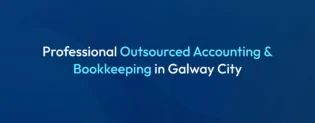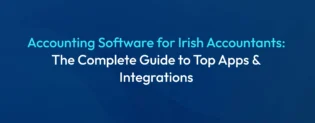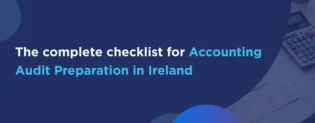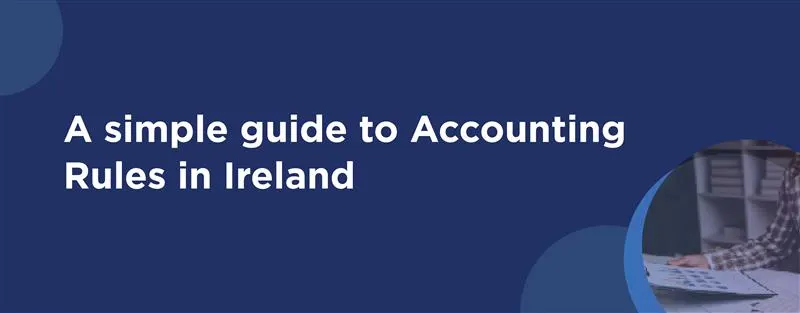
Running a business in Ireland means you need to follow certain accounting rules. Whether you’re starting your first business or have been running one for years, understanding these rules is important for your success.
Don’t worry – while the rules might seem scary at first, they’re actually there to help. They make sure businesses are honest about their money and protect people who invest in or lend to companies.
The Basic Rule: What Every Irish Business Must Do
Every Irish company owner has one main job: create yearly financial reports that show the true picture of how much money your company has and owes. This isn’t optional – Irish law says you must do it.
Think of your financial reports like a report card for your business. Just like a teacher needs to see your work to give you a grade, banks, investors, and the government need to see your financial reports to understand how well your business is doing.
The good news is that Irish law doesn’t make every business follow exactly the same rules. Small businesses get easier rules than big companies.
Two Ways to Do Your Accounts
When you prepare your financial reports, you can choose between two main ways:
Irish GAAP: The Local Way
Most Irish businesses use something called GAAP (Generally Accepted Accounting Practice). This uses rules made by experts in the UK that work well with Irish law.
Irish GAAP is practical. It knows that a small coffee shop shouldn’t have to follow the same complex rules as a huge company. Small businesses get simpler options while big companies need to share more details.
IFRS: The Global Way
International Financial Reporting Standards (IFRS) are rules used all around the world. If your company sells shares to the public or wants to do business internationally, you might need to use IFRS.
IFRS helps companies from different countries understand each other’s accounts. When an Irish company uses IFRS, investors from other countries can easily understand its financial reports. But these rules are more detailed and complex.
International Accounting Standards (IAS): Why They Matter
While most Irish private companies report under Irish GAAP or IFRS, it’s useful to understand the older International Accounting Standards (IAS) because many of them still apply within the IFRS framework. IAS were the original set of international accounting standards issued before IFRS, covering topics like how to present financial statements, account for inventories, borrowing costs, and income taxes.
Today, IAS and IFRS together form a broader list of international accounting standards used by companies around the world. Even if your Irish business reports under FRS 102, banks and international investors may still compare your figures with businesses reporting under IAS or IFRS, so being aware of these global standards can help you present your numbers more clearly.
Company Size: Why It Matters
One of the best things about Irish accounting law is that it treats different sized businesses differently. The bigger your company, the more detailed reports you need to make.
Micro Companies: The Smallest Ones
If your business has assets worth less than €437,500, makes less than €875,000 per year, and has fewer than 10 workers (you only need to meet two of these), you’re a micro company. This is good news because:
- You don’t need an auditor to check your accounts
- You can file simpler reports
Small Companies: Growing Businesses
Small companies have assets under €5.625 million, make less than €11.25 million per year, and have fewer than 50 workers. You need more detailed reports than micro companies, but still less than bigger businesses.
Medium and Large Companies: More Rules
As companies get bigger, they need to share more information. Medium companies need detailed reports, while large companies must provide the most information, including reports from company directors.
The Main Accounting Rules
Understanding which rules apply to your business helps you stay legal and save time.
FRS 102: The Main Rule
Most Irish private companies use Financial Reporting Standard 102 (FRS 102). This covers everything from how to record sales to how to handle employee benefits. It’s detailed enough to be useful but not too complex for most businesses. It is the core standard in the Irish GAAP framework for small, medium, and many large private companies.
FRS 101: The Simple Option
Some companies (usually parts of bigger listed companies) can use FRS 101, which has fewer requirements. This makes sense when detailed information is already available in a parent company’s reports. It allows qualifying Irish subsidiaries to reduce disclosure while still aligning closely with international accounting standards used in the group.
FRS 105: For Very Small Businesses
If you qualify as a micro company, FRS 105 makes your accounting much simpler while still meeting legal requirements. It is designed for the smallest entities and removes many of the more complex recognition and disclosure rules that apply under FRS 102.
- Changes to the FRS 102 (Effective January 1, 2026):
- The Financial Reporting Standard 102 (FRS 102) is still the most widely used standard for private companies in Ireland. However, some amendments to FRS 102 are expected to be rolled out starting in 2026, specifically in areas like revenue recognition and leases, so it’s important to mention these in future updates to the guide. Businesses should review new guidance in good time before their 2026 year-end to understand how these changes affect their financial statements.
- Tax Changes for 2025:
- 2025 tax updates increased Ireland’s income tax standard rate cut-off, giving businesses/individuals more income before higher rates apply businesses in Ireland. These mainly affect owners personally, not accounting rules accounting. Owners must understand both for optimal profit extraction and cash flow planning.
- iXBRL Filing Requirement:
- Starting in 2026, companies in Ireland will be required to file their financial statements in iXBRL format. This affects businesses that file with the Irish Revenue Commissioners. If your audience is small businesses, it might be useful to note that this rule will apply to larger companies or those that are publicly listed.
The changes mainly involve technical amendments and tax-related updates. Your content on FRS 102, 101, 105 and company classifications remains up-to-date.
Beyond these, a broader list of financial accounting standards includes Irish GAAP alongside international frameworks like IAS and IFRS. These types of accounting standards covering recognition, measurement, presentation, and disclosure shape how transactions appear in accounts.
The importance of accounting standards lies in their consistency and reliability, enabling stakeholders to compare accounts across years and countries. For Irish businesses, clear standards simplify raising finance, selling businesses, or partnering internationally.
Accounting Standards and Conceptual Framework
All accounting standards in Ireland including those under FRS and IFRS are built on what is known as the accounting standards and conceptual framework. This framework outlines the basic principles behind financial reporting, like relevance, reliability, and faithful representation. It guides how accountants make judgments in areas not directly covered by a specific standard.
Understanding this framework is crucial for businesses preparing accounts under Irish GAAP or IFRS, especially when deciding how to treat unusual or complex transactions.
Role of the Sustainability Accounting Standards Board (SASB)
With growing importance placed on ESG (Environmental, Social, and Governance) reporting, many Irish and EU businesses now refer to the Sustainability Accounting Standards Board (SASB) guidelines. While SASB standards are not mandatory in Ireland, they complement IFRS Sustainability Disclosure Standards developed by the International Sustainability Standards Board (ISSB).
In the coming years, integrating sustainability data into financial reports will become increasingly common. Irish businesses preparing under IFRS may start aligning their disclosures with these sustainability standards to attract global investors seeking transparent ESG reporting.
What You Actually Need to Do
Required Financial Reports
No matter what size your company is, you need these basic reports:
- Balance Sheet – Shows what your company owns and owes at the end of the year.
- Profit and Loss Account – Shows how much money you made and spent during the year.
- Statement of Changes in Equity – Shows how the ownership of your company changed during the year.
- Cash Flow Statement – Shows how cash moved in and out of your business (bigger companies need this).
- Notes – Explains your accounting choices and important events.
When to File Your Reports
Irish companies have strict deadlines:
- Private companies: File reports within 280 days of your year-end
- Public companies: File within 6 months of your year-end
If you’re late, you’ll pay fines starting at €100. If you’re very late or don’t file at all, you could face serious problems like losing your company or being banned from being a director.
Do You Need an Auditor?
Not every Irish company needs an auditor:
- Micro companies usually don’t need auditors
- Small companies might not need auditors if they meet certain conditions
- Bigger companies usually need qualified auditors to check their accounts
Recording Sales and Valuing Assets
Irish accounting rules have specific ways to record money coming in and measure what your company owns.
Recording Sales
You must record sales when you earn the money, not when you actually receive cash. This means looking at your contracts and delivery terms to decide when to record each sale.
Measuring Assets
You should only record assets and debts when they’re likely to bring future benefits and you can measure them reliably. Usually, you record things at what they cost, but sometimes you can use current market values if that gives better information.
Checking Asset Values
You need to regularly check that your assets aren’t recorded at more than they’re actually worth. This protects people who rely on your financial reports from being misled.
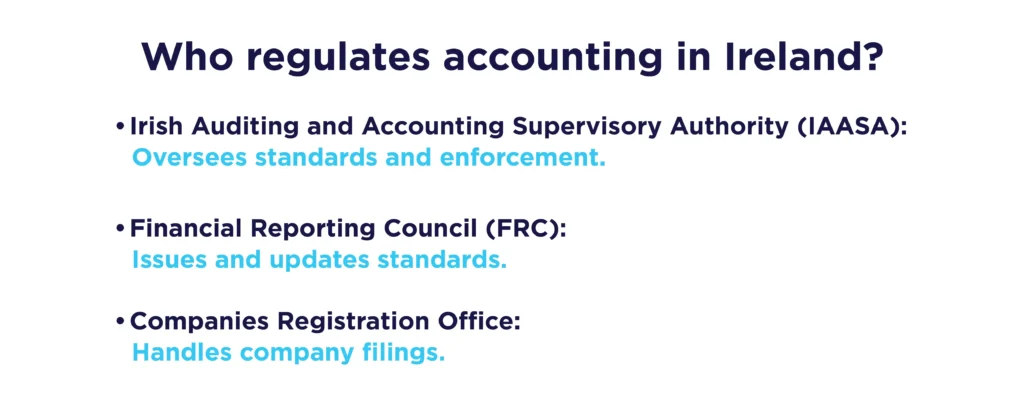
Who Watches Over Accounting in Ireland
IAASA: The Main Watchdog
The Irish Auditing and Accounting Supervisory Authority (IAASA) is the main organization that makes sure accounting standards are followed. They watch over auditors and take action when companies don’t follow the rules properly.
Professional Bodies
Various professional accounting organisations approve and register qualified accountants under IAASA’s supervision. This makes sure only properly trained people give accounting advice.
Making Compliance Easy for Your Business
Following Irish accounting rules successfully means more than just avoiding fines. The best businesses use financial reporting to help them grow and build trust with customers, banks, and investors.
Start Early
Begin preparing your year-end reports well before your deadline. Starting early prevents rush jobs, saves money, and gives you time to use your financial results for planning.
Get Professional Help
While small businesses can handle basic accounting themselves, modern accounting rules can be complex. A qualified outsourced accountant can make sure you follow the rules correctly while finding ways to improve your business processes.
Invest in Good Systems
Good accounting software pays for itself by making your work easier, reducing mistakes, and giving you better information to run your business. The money you spend on proper systems usually comes back through lower compliance costs and better decisions.
IAASA’s oversight also ensures Ireland aligns its international accounting standards with EU-wide principles. This means Irish businesses indirectly follow international standards even when reporting under GAAP, especially in areas where EU directives overlap with IFRS or IAS.
What’s Next
Irish accounting rules keep changing as business needs change and international standards develop. Staying informed about rule changes and keeping good financial reporting helps your business grow while meeting what banks, investors, and regulators expect.
Remember, these rules aren’t meant to make your life harder. Proper financial reporting shows that you run your business responsibly, helps you get loans or investment, and builds the trust that every successful business needs.
The key is understanding that these rules help your business succeed. By being honest and transparent and using the right accounting methods, you’re not just following the law – you’re building a foundation for long-term success.
As Ireland continues aligning with global and sustainability standards, we can expect closer integration between FRS updates, IFRS improvements, and future frameworks developed by bodies like the IASB and SASB.
Ready to simplify Irish accounting compliance with expert outsourced bookkeeping? Contact us today via call +353 212069255 or mail at info@outbooks.com.
FAQs
What are the main accounting standards used in Ireland?
What is FRS 102?
Do all Irish companies need to prepare financial statements?
Which companies can avoid having an audit?
What are the size limits for small companies?
When do companies need to file their accounts?
What happens if a company files late?
Who regulates accounting standards in Ireland?
Can Irish companies use simplified accounting?
What records must Irish companies keep?
Do Irish subsidiaries of foreign companies have special rules?
What’s changing in Irish accounting rules?
Where can I get help with Irish accounting rules?
Do I need professional help?
Accounting Rules & Standards
Parul is a content specialist with expertise in accounting and bookkeeping. Her writing covers a wide range of accounting topics such as payroll, financial reporting and more. Her content is well-researched and she has a strong understanding of accounting terms and industry-specific terminologies. As a subject matter expert, she simplifies complex concepts into clear, practical insights, helping businesses with accurate tips and solutions to make informed decisions.


